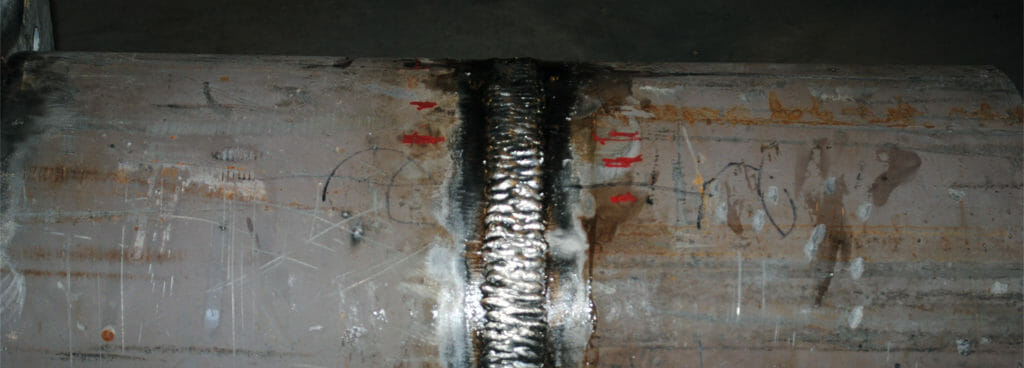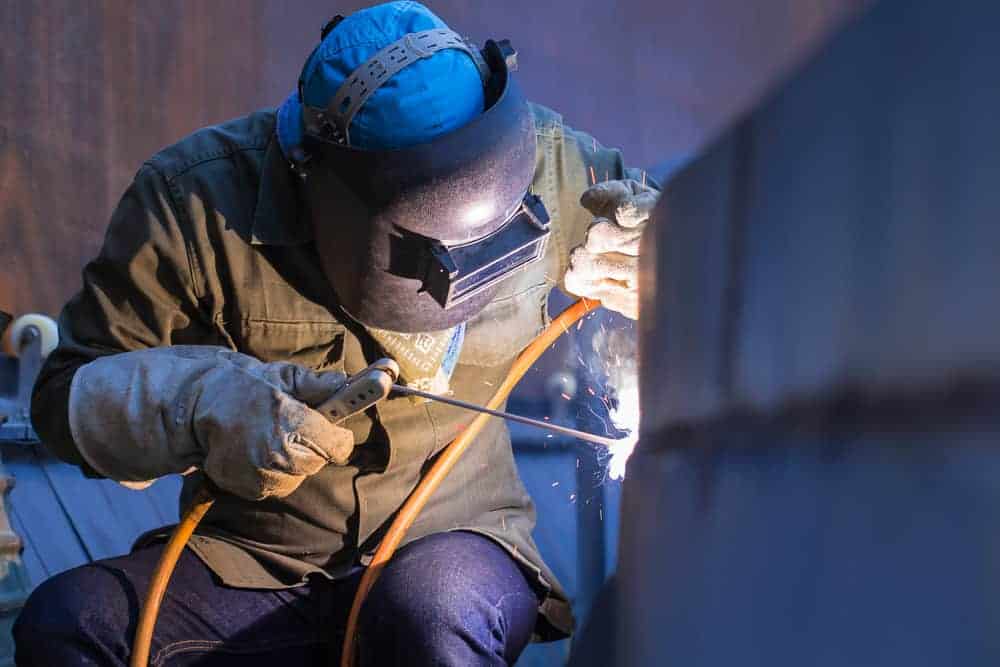Understanding the Importance of Welding Inspection Madison in Building
Wiki Article
The Significance of Thorough Welding Inspection in Industrial Applications
In the realm of commercial applications, the relevance of careful welding evaluation can not be overemphasized. It plays an essential function in guaranteeing the structural honesty and durability of welded elements. Advanced non-destructive screening methods permit the very early discovery of potential issues, such as splits and insufficient fusion, which, if left uncontrolled, might lead to disastrous failures. Adherence to rigorous market criteria not only assures quality however also develops client confidence. As we check out the complex benefits of persistent welding evaluations, one have to think about the more comprehensive implications on safety, reliability, and cost-effectiveness in industrial procedures.Enhancing Structural Integrity
When it comes to welding examination in industrial applications, enhancing structural integrity is paramount. The primary objective of welding examination is to make sure that the welds are capable of bearing the anticipated anxieties and tons they will run into in solution.The significance of keeping structural integrity in bonded frameworks can not be overstated. Poorly performed welds can lead to tragic failings, resulting in pricey repair services, downtime, and even endangerment of human lives. For that reason, inspectors play a critical duty in the lifecycle of industrial parts, offering assurance that the welding procedure delivers the wanted strength and durability.
Furthermore, progressed modern technologies, such as phased variety ultrasonic testing and digital radiography, deal enhanced abilities in finding potential weaknesses, enabling corrective procedures prior to issues escalate. By focusing on the integrity of welds with careful assessment, sectors can make sure operational effectiveness and expand the durability of their infrastructure.
Determining Welding Flaws
Identifying welding problems is a critical facet of guaranteeing the safety and security and integrity of welded structures. These problems can compromise the stability of the whole setting up and, if left unaddressed, might lead to catastrophic failures. Common welding problems include porosity, fractures, incomplete combination, and undercutting. Each of these flaws arises from particular causes, such as incorrect welding methods, contamination, or insufficient warmth control.
Knowledgeable inspectors use both visual assessment and progressed non-destructive testing (NDT) techniques, such as radiographic or ultrasonic testing, to identify these flaws. The prompt identification and rectification of welding flaws are essential to preserve the architectural integrity and durability of commercial parts.
Guaranteeing Compliance Requirements
Conformity with well established requirements, such as those provided by the American Welding Society (AWS) and the International Company for Standardization (ISO), makes certain that welds satisfy minimum safety and quality needs. These criteria incorporate a wide array of standards, consisting of product specs, welding procedures, and qualification of welders.
Regular audits and inspections are essential in validating compliance. Assessors should have a detailed understanding of the relevant standards and be proficient at making use of numerous non-destructive testing (NDT) techniques to review weld high quality. By making sure that welding practices straighten with conformity requirements, firms minimize the danger of non-conformity, which can result in legal liabilities and safety threats.
Moreover, maintaining conformity not only safeguards structural stability but likewise improves a business's reputation in the sector. Clients and stakeholders are most likely to trust firms that continually show a commitment to high quality and security with strenuous conformity. Thus, ensuring conformity criteria is a crucial component in the effective execution of welding in industrial applications.
Decreasing Maintenance Prices

The application of innovative non-destructive testing (NDT) methods, consisting of ultrasonic, radiographic, and magnetic bit evaluations, enhances the capability to discover my latest blog post subsurface flaws without endangering the structural integrity of parts. By employing these strategies, markets can significantly prolong the life span of their devices, minimizing downtime and the linked monetary burden of maintenance tasks.
Additionally, a durable welding evaluation regime sustains the optimization of upkeep routines, changing from reactive to predictive upkeep strategies. This aggressive approach not only stops unexpected failings yet also simplifies resource appropriation, ensuring that upkeep initiatives are focused and efficient. Inevitably, the investment in extensive welding assessment is countered by the substantial financial savings recognized through decreased upkeep needs, contributing positively to the general functional performance of commercial enterprises.
Improving Precaution
Although safety is a vital problem in commercial operations, accomplishing ideal security criteria calls for a dedicated concentrate on the high quality and integrity of bonded frameworks. Welding inspection plays a vital function in this context, as it makes sure that all links and joints satisfy rigorous safety and security standards. Comprehensive inspections aid recognize issues such as splits, porosity, or insufficient fusion that could compromise architectural honesty. Such flaws, if left unaddressed, present considerable dangers, potentially leading to disastrous failings.To improve security steps, adopting innovative non-destructive testing (NDT) techniques is crucial. Techniques like ultrasonic testing, radiographic testing, and magnetic particle assessment enable detailed exam without damaging the framework. These innovations make it possible for assessors to detect surprise defects early in the construction procedure, facilitating prompt corrective actions. Implementing a robust top quality control system that consists of routine training for inspectors and welders makes certain adherence to established safety and security standards.
Finally, cultivating a society of safety within the organization highlights the significance of thorough welding evaluations. Motivating open interaction and cooperation amongst welders, inspectors, and engineers adds to a common dedication to safety and security quality. Welding Inspection Madison. In doing so, sectors can safeguard their operations, protect employees, and keep public count on
you could try these out

Conclusion
Complete welding assessment is indispensable in industrial applications, considerably enhancing architectural honesty and integrity. By utilizing sophisticated non-destructive testing approaches, possible welding flaws such as fractures and incomplete blend are determined early, guaranteeing compliance with sector standards and fostering customer depend on. Rigorous inspections bring about decreased maintenance prices and contribute to a more secure working atmosphere. Ultimately, the attentive execution of welding inspections plays an essential duty in maintaining functional effectiveness and safety in industrial setups.As we explore the diverse advantages of persistent welding examinations, one should take into consideration the broader ramifications on safety and security, reliability, and cost-effectiveness in industrial procedures.
The primary goal of welding examination is to guarantee that the welds are capable of birthing the expected loads and tensions they will come across in solution. Effective welding assessment plays an important duty in minimizing these costs by guaranteeing the stability and long life of welds, therefore mitigating the risk of early failings.Detailed welding inspection is vital in industrial applications, significantly enhancing structural stability and dependability. Eventually, the thorough implementation of welding assessments plays an essential function in preserving operational efficiency and safety in industrial settings.
Report this wiki page